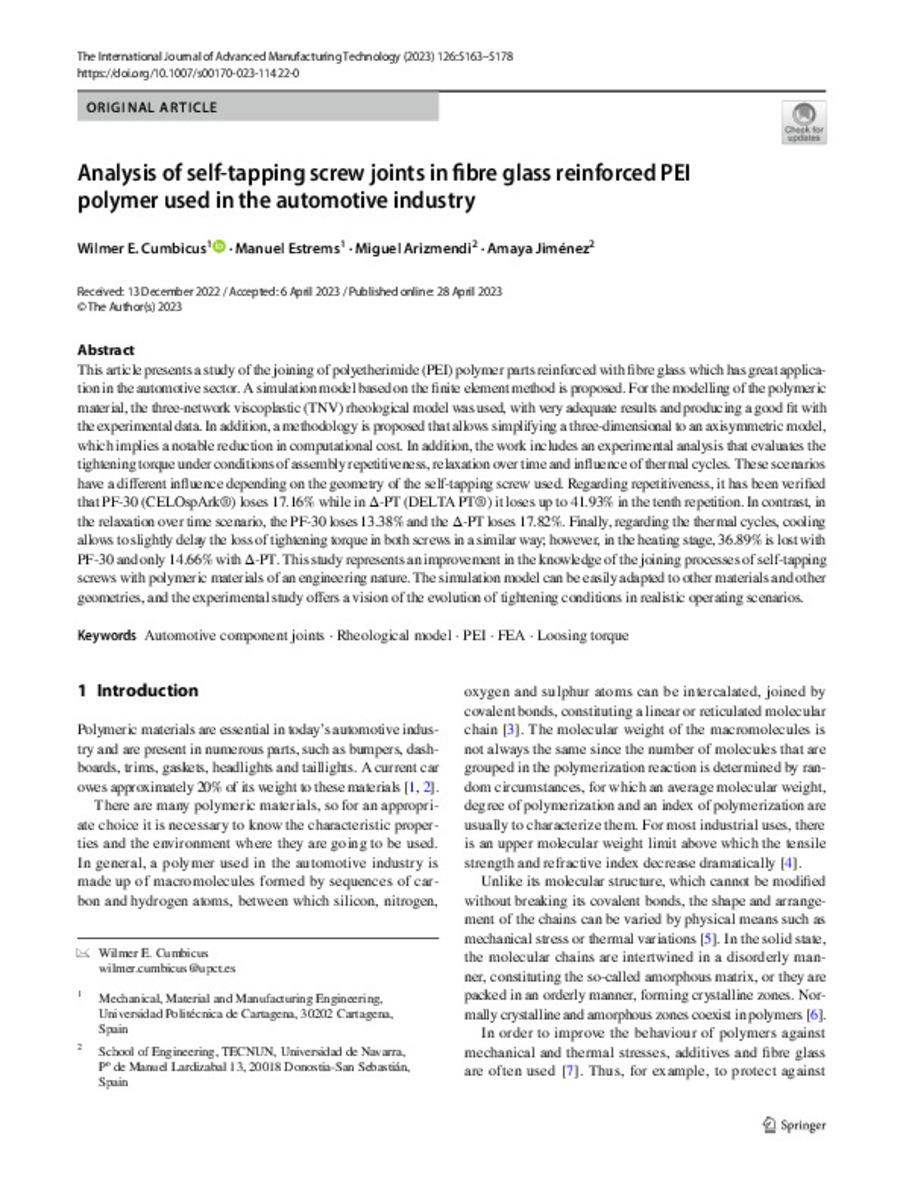Analysis of self-tapping screw joints in fibre glass reinforced PEI polymer used in the automotive industry
Keywords:
Área Ingeniería Mecánica, Naval y Aeronáutica
Automotive component joints
Rheological model
PEI
FEA
Loosing torque
Finite element anallysis
Mechanical properties
Torque
Editorial note:
This article is licensed under a Creative Commons Attribution 4.0 International License (CC BY 4.0)
Citation:
Cumbicus, W. E.; Estrems, M.; Arizmendi-Jaca, M. (Miguel); et al. "Analysis of self-tapping screw joints in fibre glass reinforced PEI polymer used in the automotive industry". INTERNATIONAL JOURNAL OF ADVANCED MANUFACTURING TECHNOLOGY. , 2023,
Statistics and impact
0 citas en

0 citas en

Items in Dadun are protected by copyright, with all rights reserved, unless otherwise indicated.







